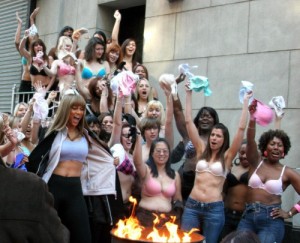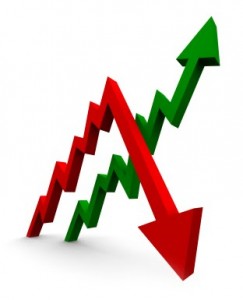 Thanks to the generous work of Marcelle Heath, gender in publishing has been a topic of discussion on Luna Park for the past months—with contributions from editors and writers Roxane Gay, Sherisse Alvarez, Jarrett Haley, and half-a-dozen others. In our most recent addition, Helen Sedgwick from Fractured West adds to her co-editor’s comments about editors and gender with “You Girls, part two“:
Thanks to the generous work of Marcelle Heath, gender in publishing has been a topic of discussion on Luna Park for the past months—with contributions from editors and writers Roxane Gay, Sherisse Alvarez, Jarrett Haley, and half-a-dozen others. In our most recent addition, Helen Sedgwick from Fractured West adds to her co-editor’s comments about editors and gender with “You Girls, part two“:
In the same way as I listen to Beethoven’s music for the love of his music, I have always said that as an editor (and a reader) I would judge writing in terms of the writing itself, not the author. I often just skim cover emails and rarely read the author biographies I am sent. My decision on whether or not to publish a piece of work does not depend on how much or how little the author has previously published, or on their education, class, race, gender, or sexuality. Nor does it depend on the author’s personal politics. It depends on what the words on the page actually say.
Earlier this week over at HTMLGIANT, Blake Butler, Kate Zambreno, Amy King and Roxane Gay began their own conversation on the same subject, “But What About Nipples? A Nice Conversation (Pt. 1).” The conversation was initiated in response to a recent posting on the website about an all-male issue of We Are Champions. Here’s an interesting bit from one of Butler’s main points in the discussion:
Is the only way to have diversity through flesh and organs? What about diversity in the word? When Lily Hoang and I were talking about this, she mentioned that maybe she was being naïve, but she didn’t see it as an issue for women getting published now. Like, everyone in this conversation is well published, and has been around. Even if Gene had set out to publish an all male issue, which I know he didn’t, would that be so bad? If that is what he wanted? I see humans as human. Anyone can say a word. And yet, I love all female issues also, the all female issue of New York Tyrant one of their best publications. Is framing necessary? Is fetishizing sacred? I don’t know, I just don’t see the battle here. Are people not reading females? That would seem insane, to me, to be a claim. Aren’t there bigger issues at stake than who’s in line and whose turn it is?
And in yet another discussion on gender in publishing, Guernica and PEN America hosted a panel discussion on the subject with Lorraine Adams, Esther Allen, Alex Epstein, Norman Rush, moderated by Claire Messud, “The Diversity Test.” Here’s the video of the 90-minute talk:
 Finally, three words: lit mag rankings. The rankings (or what is left of them) and the discussion in order below.
Finally, three words: lit mag rankings. The rankings (or what is left of them) and the discussion in order below.
Lincoln Michel (from Gigantic).
If you came here looking for my literary magazine ranking I’m afraid it is gone.
There was an interesting comment in response to Lincoln Michel’s ranking list concerning a predominant writer-centric attitude toward literary journals, rather than a reader-centric one.
A lot of people on the Information Superhighway are talking about this list of lit mag rankings put together by Lincoln Michel at The Faster Times. Naturally, I’ve decided to put together my own list.
Keith Botsford (from News from the Republic of Letters).
The author’s criteria for selection seem to me sound, at least in part, the question being ‘If you were a writer, to whom should you try to flog your merchandise?’
And Lincoln Michel, redux.
My post on literary magazines got far more traffic than I had envisioned. I thought maybe a few hundred people would glance through it, but instead several thousand did.
Every Tuesday, Travis Kurowski presents Luna Digest, a selection of news from the world of literary magazines. Travis is the editor of Luna Park, a magazine founded on the idea that journals are as deserving of critical attention as other artistic works.
No Comments
Leave a Comment
trackback address